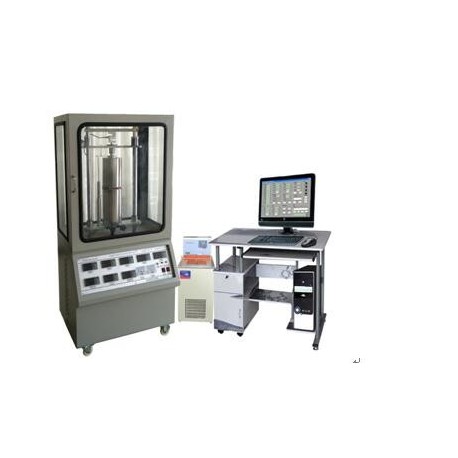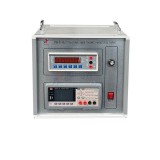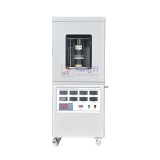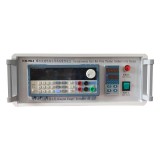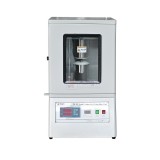Heat flow method for thermal conductivity coefficient measuring instrument (without vacuum device)
TCM-R-III-C
- Remove this product from my favorite's list.
- Add this product to my list of favorites.
Product info
I. Introduction:
It is mainly used for testing the thermal resistance of thin thermal conductor, solid electrical insulation materials, thermal grease, resin, rubber, ceramic beryllium oxide, aluminum oxide ceramic, and other materials and contact thermal resistance of the solid material at the interface and coefficient of thermal conductivity of materials. Test material is solid sheet, plus frame can detect material in powder and paste material.
Instrument Reference Standard: MIL-I-49456A (insulation sheets, thermally conductive resin, the thermal conductivity of glass fiber reinforced); GB 5598-85 (beryllium oxide ceramic thermal conductivity measurement method); ASTM D5470-2006 (thin solid thermal conductivity of electricity insulating materials heat transfer performance testing standards) and the like.
Thermal conductivity coefficient measuring instrument features: with automatic compression, automatic thickness measurement devices, and even fully automatic computer control. Instruments adopt 6 point temperature gradient detection, improve test accuracy. Detectable resistance curves at different pressures, using mathematical optimization model, measurable material thermal conductivity coefficient and thermal resistance as well as contact resistance at the interface and a plurality of other parameters.
Widely used in the analysis and detection of material thermal conductivity in universities, research institutes, quality inspection departments and production plant
Ⅱ. Main technical parameters:
1, Sample size: ≤Φ30mm
2, Thickness of the sample: 0.02-20mm
3, Extreme heat Temperature control range: room temperature -299.99 ℃, temperature control accuracy of 0.01 ℃
4, Extremely cold temperature control range: 0-99.00 ℃, temperature control accuracy of 0.01 ℃
5, Thermal conductivity coefficient test range: 0.01 ~ 50W / m * k, 1 ~ 300W / m * k
6,Thermal resistance test range: 0.05 ~ 0.000005m2 * K / W
7,Pressure measuring range: 0 ~ 1000N
8, Displacement measuring range: 0 ~ 30.00mm
9,Test accuracy: better than 3%
10, Experimental way: a, test specimen thermal resistance under the different pressures. b, material thermal conductivity coefficient test c, contact thermal resistance testing.
11, Computer automated testing and data can be printed.

